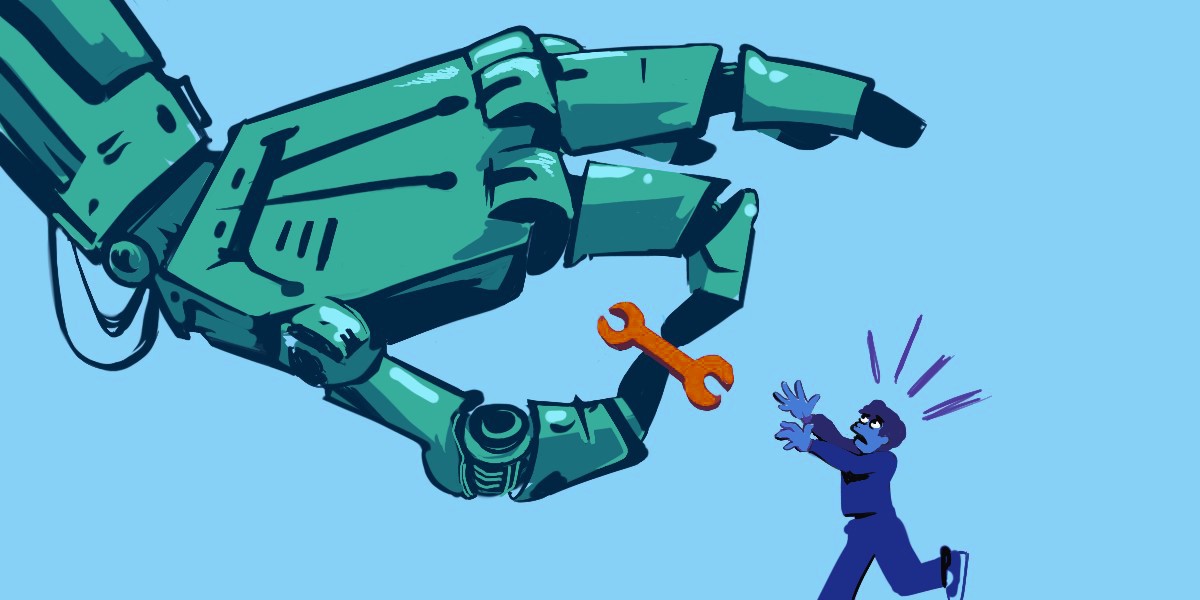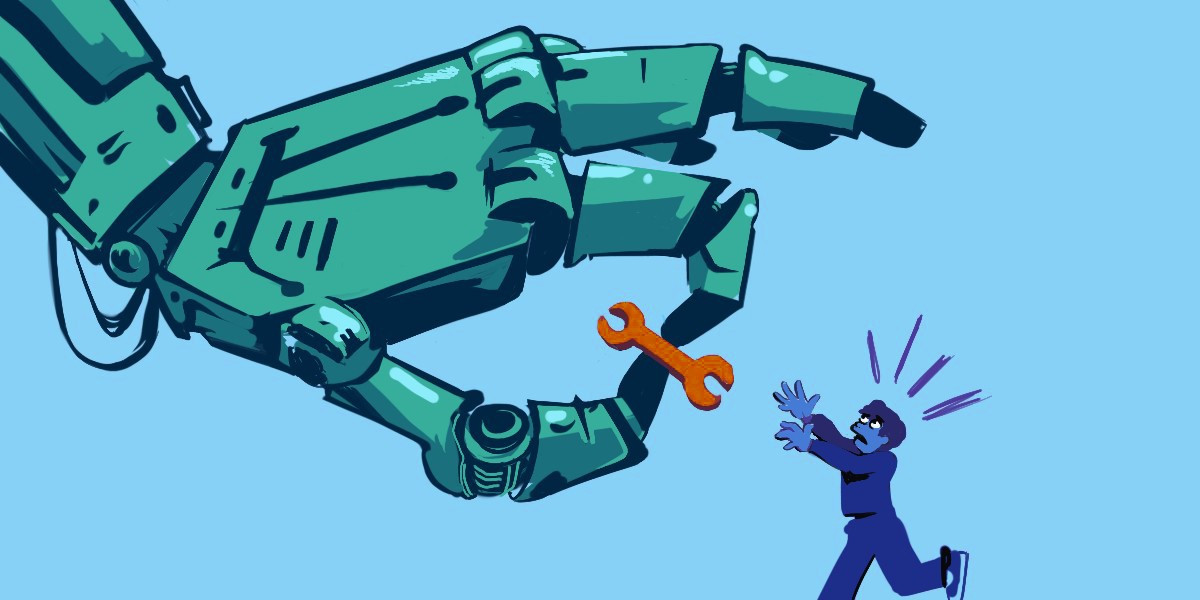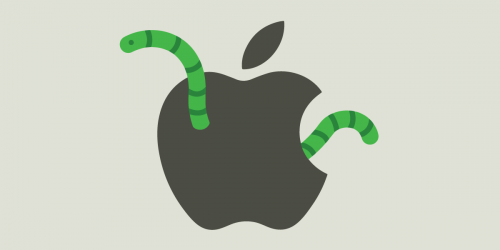Docket of the Living Dead
In 2017, Federal Communications Commission Chairman Ajit Pai - a former Verizon lawyer appointed by Donald Trump - announced his intention to dismantle the Commission’s hard-won 2015 Network Neutrality regulation. The 2015 order owed its existence to people like you, millions of us who submitted comments to the FCC demanding commonsense protection from predatory ISPs.
After Pai’s announcement, those same millions - and millions of their friends - flooded the FCC’s comment portal, actually overwhelming the FCC’s servers and shutting them down (the FCC falsely claimed it had been hacked). The comments from experts and everyday Americans overwhelmingly affirmed the consensus from the 2015 net neutrality fight: Americans love net neutrality and they expect their regulators to enact it.
But a funny thing happened on the way to the FCC vote: thousands, then millions of nearly-identical comments flooded into the Commission, all opposed to net neutrality. Some of these comments came from obviously made-up identities, some from stolen identities (including identities stolen from sitting US Senators!), and many, many dead people.. One million of them purported to be sent by Pornhub employees. All in all, 82% of the comments the FCC received were fake, and the overwhelming majority of fake comments opposed net neutrality.
Sending all these fake comments was expensive. The telecoms industry paid millions to corrupt the political process. That bill wasn’t footed by just one company, either - an industry association paid for the fraud.
How did that happen?
One Big, Happy Family
Well, telecoms is a highly concentrated industry where companies refuse to compete with one another: instead, they divide up the country into a series of exclusive territories, leaving subscribers with two or fewer ISPs to choose from.
Not having to compete means that your ISP can charge more, deliver less, and pocket the difference. As a sector, the US ISP market is wildly profitable. That’s only to be expected: when companies have monopolies, value is transferred from the company’s customers and workers to its executives and shareholders. That’s why executives love monopolies and why shareholders love to invest in them.
Profits can be converted into policies: the more extra money you have, the more lobbying you can do. Very profitable companies find it much easier to get laws and regulations passed that benefit them than less profitable ones do, and even less profitable companies get their way from lawmakers and regulators more often than the public does.
But excessive profits aren’t the only reason an industry can get its way in the political arena. When an industry is composed of hundreds of small- and medium-sized firms, they aren’t just less profitable (because they compete with one another to lower prices, raise wages and improve their products and services), they also have a harder time cooperating.
When the people who control your industry number in the hundreds or thousands, they have to rent a convention center if they want to get together to hammer out a common lobbying policy, and they’ll struggle to do so - a thousand rival execs can’t even agree on what lunch to buy, much less what laws to buy.
When control over the industry dwindles to a handful of people, they can all fit around a single table. They often do.
Competition Is For Losers
And that’s how tens of millions of fake anti-net neutrality comments ended up in front of the FCC. A highly concentrated ISP sector decided to cooperate, rather than compete, with each other.
This let them rip off the country and make a lot of money. Some of that money was set aside for lobbying, and since there are only a handful of companies that dominate the sector, it was easy for them to decide what to lobby for.
To top it all off, the guy they had to convince was one of their own, a former executive at one of the monopolistic companies that funded the fraud campaign. He was, unsurprisingly, very sympathetic to their cause.
Monopolies equip companies with vast stockpiles of ammo to use in the policy wars. Monopolies reduce the number of companies that have to agree on a target for that ammo.
How It Started/How It’s Going
Back in the 2000s, the tech sector was on the ropes. Google had two lobbyists in DC. Despite the prominence of a few companies (Microsoft, Yahoo, Netscape), most of the web was in the hands of hundreds of small and medium-sized companies, many of them struggling with the post-9/11 economic downturn.
Meanwhile, the entertainment industry was highly concentrated and highly disciplined. Waves of genuinely idiotic tech laws and regulations crashed over the tech sector, and only some fast, savvy courtroom work by nonprofits and inspired grassroots activism kept these outlandish proposals at bay.
The tech sector of the early 2000s had a much higher aggregate valuation than the entertainment sector, and it was more dynamic and diverse, with new companies appearing out of nowhere and rising to prominence in just a few years, displacing seemingly unassailable giants whose dominance proved fleeting.
But the entertainment industry was concentrated. Music was dominated by six major labels (today it’s three, thanks to mergers and acquisitions); TV, film and publishing were likewise dominated by a handful of companies (and, likewise, the number of companies has contracted since thanks to a series of mergers). Some of these major labels and studios and broadcasters had the same corporate owners, a trend that has only accelerated since the turn of the century.
These monopolized industries possessed the two traits necessary to secure policies favorable to their interests: excessive monopoly profits and streamlined monopoly collaboration. They had a lot of ammo and they all agreed on a set of common targets to blast away at.
Today, Big Tech is just as concentrated as Big Content, and it has an army of lobbyists who impose its will on legislators and regulators. The more concentrated an industry is, the more profitable it is, the more profitable it is, the more lobbyists it has, the more lobbyists it has, the more it gets its way.
Clash of the Titans
Monopoly begets monopoly. Before the rise of Big Tech, the tech sector was caught in a vicious squeeze between the monopolistic ISP industry and the monopolistic entertainment industry. Today, Big Tech, Big Content and Big Telco each claim the right to dominate our digital lives, and ask us to pick a giant to root for.
We’re not on the side of giants. We’re on the side of users, of the public interest. Big companies can have their customers’ or users’ backs, and when they do, we’ve got their back, too. But we demand more than the right to choose which giant we rely on for a few dropped crumbs.
That’s why we’re interested in competition policy and antitrust. We don’t fetishize competition for its own sake. We want competition because a competitive sector has a harder time making its corporate priorities into law. The law should reflect the public interest and the will of the people, not the mobilized wealth of corporate barons who claim no responsibility to anyone, save their shareholders.
Have You Tried Turning It Off and On Again?
Even critics of the tech antitrust surge agree that the tech sector is unhealthily concentrated. But they are apt to point to the outwardly abusive conduct of the sector: using copyright claims to block interoperability, weaponizing privacy to shut out rivals, selling out net neutrality, embracing censorship, and so on.
We’re in vigorous agreement with this analysis. All of this stuff is terrible for competition. But all this stuff is also enabled by the lack of competition. These are expensive initiatives, funded by monopoly profits, and they’re controversial initiatives that rely on a monopolist’s consensus.
It’s true that sometimes a monopolist defends the public interest while sticking up for its own interests. The Google/Oracle fight over API copyrights saw two billionaires burning millions of dollars to promote their own self-interest. Oracle wanted to change copyright law in a way that would have let it take billions away from Google. Google wanted to keep its billions. For Google to keep its billions, it had to stand up for what’s right: namely, that APIs can’t be copyrighted because they are functional, and because blocking interoperability is counter to the public interest.
If we demonopolized Google - if we forced it to operate in a competitive advertising environment and lowered its profits - then it might not be able to fight off the next Oracle-style assault on the public interest. That’s not an argument for increasing Google’s power - it’s an argument for decreasing Oracle’s power.
Because more often than not, Google and Oracle are on the same side, along with the rest of the tech giants.
And now that the FCC is getting new leadership, it’s a safe bet that we’ll be fighting about net neutrality again, this time to restore it, with the same shady tactics that we saw in 2017. Google might be our ally in fighting back - net neutrality is in the tech sector’s interest, after all - but then again, maybe they’ll cut another deal with a monopolistic telco.
The way to stop Big Telco from shredding the public interest isn’t to make Google as large as possible and hope it doesn’t switch sides (again): it’s to shrink Big Telco until it fits in a bathtub.
Profits are power. Concentration is power. Concentration is profitable. Profits let merging companies run roughshod over the FTC and become more concentrated. Lather, rinse, repeat.
The system of monopoly is a ravenous beast, a cycle that turns money into power into money into power. We have to break the cycle.
We have to starve the beast.











